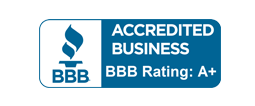Cool air in the summer, warm air in the winter—that’s at least the way it’s supposed to happen, right? Most times that’s exactly the case as we rely on our trusty air conditioning units and heaters to save us from the intolerable temperatures outdoors. What happens, however, if the units stop working? Or perhaps you begin to hear a strange noise? Suddenly, you’re worried that you’ve waited too long for a routine service appointment and now you may be footing the bill for a brand new unit.
Thankfully, by adhering to the right service schedule, you’ll be ahead of any potential problems that could turn a routine repair into an unexpected—and costly—replacement.
Here’s our guide for keeping up with your AC and heating unit–and how to know which “R” job you need done:
Routine Tune Up
You service your car every few thousand miles, right? And we bet, you’ve recently attended your annual physical. Yet when it comes to the appliances in our homes, we often forget that they need routine care, as well. Across the board, industry experts—including our team of experienced technicians—recommend getting your air conditioning unit and heater serviced once a year to ensure everything is running smoothly.
During these appointments your Heating, Ventilation, and Air Conditioning (HVAC) technician will perform:
- A 6-point furnace inspection, including: filter change, check thermostat calibrations, inspect connections and system controls, check condensate drain in the furnace and assess any repairs that may need to be made.
- A 6-point AC inspection, including: check condenser coil, thermostat, take a wet bulb reading, assess the motor amperage, inspect the superheat and subcooling and again, check for any necessary repairs.
Repair v. Replace
- If your system is relatively new, then it is likely more financially sound to repair your unit than replace.
- If the cost of repairs is less than half of its value, again we suggest repairing.
- If you don’t own the building that the unit is in, then replacing would not be a good investment in the long run.
- And obviously, if it is a smaller, more affordable fix–or this is your first issue with the unit—it’s logical that a simple repair will yield years of hard work for your unit.
Now, to the big question: to repair or to replace—that is so often the question (and concern)! While every situation is different and should be assessed by a professional HVAC technician, a general rule of thumb for repair is:
As for replacing, we suggest:
- If you are consistently having issues with your unit, then it eventually becomes more financially sensible to replace entirely, than to pay for repair after repair.
- If your unit is 10 years or older, the EPA suggests replacing the units rather than repairing.
- If there are excessive noises or run even temperatures, it is an indicator that the system is overworked and cannot adequately maintain the necessary temperatures in your home. In this case, a newer unit may be better equipped to heat or cool your home without difficulty or overexertion
Hopefully you haven’t already begun to hear a rattling coming from your HVAC unit or walked into your home on a cold day only to be greeted by an obvious lack of warmth. If so–or if you need to schedule your annual service appointment to avoid any possible pitfalls—please don’t hesitate to call today at 985.626.7741. Whether it’s cooling your home during the hot summer days or keeping it toasty during the frosty winter months, our job is to ensure you’re always comfortable in your home all year round.

